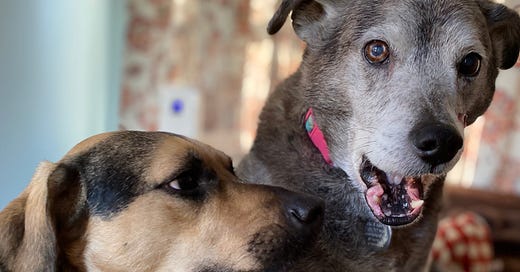D. W. Winnicott, "On Adoption"
Winnicott, D. W. “On Adoption.” 1957. The Collected Works of D. W. Winnicott: Vol. 5, 1955–1959. Edited by Lesley Caldwell, et al. Oxford UP, 2017, pp. 21–23.
Summary:
In this chapter, Winnicott insists that children should be told “as early as possible” that they’re adopted, given that they may find out anyway from friends, neighbors, or gossip, and given that it might be “nasty” to receive this news from someone other than the parents. He also recommends that parents contend with their adopted children’s imagination of their heredity and the reason they’re adopted with especial care: “With their own children they [parents] can allow intuition full sway except when things go wrong and when a child is showing symptoms of illness. Adopted children need to be thought about, even when they are healthy” (23).
Thoughts:
I am struck by Winnicott’s 1) sense of profound and fundamental difference for adoptive families and 2) his sense that children intuit, in his words, “in a bodily way that there was a state . . . [pre-birth or post-birth but before language]—a state out of which he or she emerged as an individual” (22). He wants the adopted person to be able to join up these memories and feelings with their imaginations to form a (healthy) mind.
I am not at all sure what that means. A mind, like that of a biologically kinned child? What exactly is in the way of that formation?
I think the idea of difference as ignorance or secrecy—that the parent cannot provide information about the genitors or the child’s ancestry, and therefore there is a shroud around the past, and that past is somehow formative of “the mind”—but I think it’s less that this is not available than that it goes to difference from “other people” or whatever is narrated as “normal” family construction;
I think the idea that the child is pitiable—I am profoundly struck by Winnicott’s tone: the adopted child is to be pitied for their difference and require special handling, poor thing. My response to that is that
Pity is always a power move—why does Winnicott need that here?
Why not pity the child in their biological home without love or without the necessities of life or actually being abused? (I realize this is whataboutism, yes.)
Is that kind of home indistinguishable in this person’s feelings from the adoptive home, even if loving? Why?
I am also struck by the archaism—really by what is now a distinction between popular ways of talking about adoption and more nuanced ones—“the actual parents,” by which he means the genitors of the child. It is, after all, the 1950s, so I would not expect otherwise, and yet the way in which this chapter is written makes me think of Bartholet’s chapter on adoption stigma, her sort of ferocious observation of how stigma attaches to adoption and how this is a problem for the practice.
It also makes me think about some adoption abolitionists who have accepted that they are pitiable and stigmatized, and have accepted that they have a right to feel hurt (because they are constantly being explained this way and represented this way), and thus want to burn it all down. Perhaps a different approach is to imagine that this is something told to them or circulated in culture in such a way that it’s been naturalized. Perhaps this stigmatizing is meant to make a distinction without real difference, and some abolitionists have decided to accept what people like Winnicott tell them they are. Winnicott is not talking about the conditions for relinquishment or unmatched adoptions; however, that ridiculous “poor unfortunate things” rhetoric is an identity that some abolitionists accept for adopted people and adoptive families, along with the idea that “the actual parents” are their genitors. Maybe—I mean this is Winnicott, so maybe. But I want to be skeptical, I want to ask not just whether this is so, but what forces want to make us believe it’s so, what’s their agenda, conscious or otherwise— and to try to parse whether there are thoughtful supports for genetic kinship as preferable that don’t make victims and lesser-thans out of adopted people or their families.




